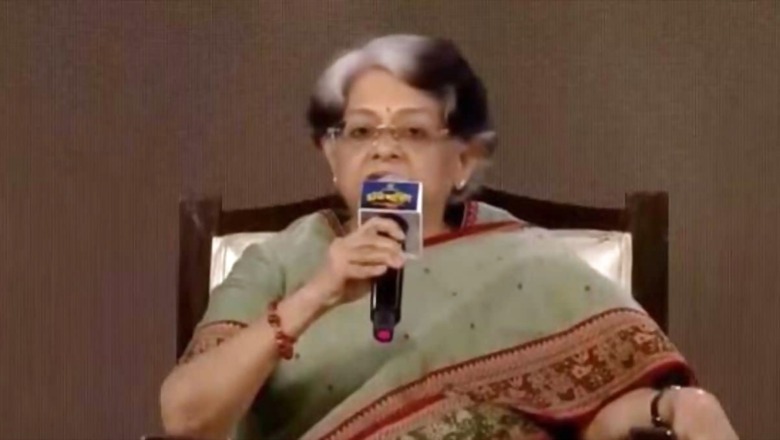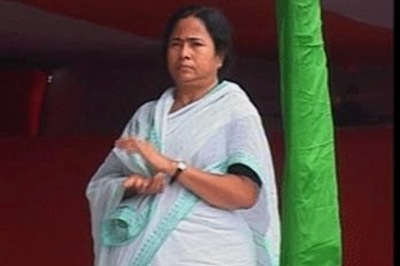
views
Kolkata’s RG Kar case, in which a 31-year-old trainee doctor was brutally raped and murdered in her workplace, has not only stirred anger in the country but also opened up discussions about security and safety in the workplace and the need to bolster already-existing laws.
The case also formed the fulcrum of the session titled ‘Safety, Systems, Society’ at the second edition of News18 SheShakti held in New Delhi on Monday where leading voices from the judiciary, Delhi Police and policy think-tanks assembled to discuss women’s safety in the workplace.
When asked about the reasons behind the increased cases of violence against women, Justice Indu Malhotra, retired Supreme Court judge and senior SC counsel, said for starters, there was more reporting about the crimes now compared to earlier.
“Each time a crime takes place, a commission of inquiry is instituted. There are enough laws and policy guidelines to deal with this. Where I feel the system has broken down is the level of implementation of these laws. The issue that concerns me about the RG Kar case is that preventive steps need to be taken to safeguard doctors. Thirty-six hours of duty, complete lack of security in hospitals, no separate resting place for doctors — these are some of the infrastructural issues; that too in government hospitals that get aid from the government.
“One of my biggest disappointments is that even after the Nirbhaya case, there was a huge fund that was instituted but not even a fraction of that seems to have been spent to improve the safety and security of women. The lack of prioritisation of disbursement of funds that are meant for this purpose is problematic.”
Suman Nalwa, DCP & PRO Delhi Police, said apart from the socio-cultural issues that were pointed out behind the rising crimes against women, another factor was that women were not ready to contain themselves anymore and there was a certain backlash against it.
“Women are coming forward in all fields. They are now into leadership roles. If you see the internet, there is violence against women in the form of insults. And these are going unchecked. Since people are able to write any filth and get away with it on social media, the violence is also reflected on the ground. Women revolting against the patriarchal mindset are becoming more vulnerable as they migrate for jobs, education etc. We have landmark legislations and policies like reservation for women in police but still, a lot has to be done vis a vis organisational framework. Isn’t it the responsibility of organisations to ensure the women employees are well taken care of?”
Saheli Chakraborty, Assistant Professor, National University of Juridical Sciences, added that women were often unaware of laws such as POSH (Protection of Women from Sexual Harassment Act) or were scared of speaking up for fear of losing their jobs.
Speaking about POSH, Justice Malhotra said of late, more complaints have come in from three sectors — sports, entertainment, and armed forces and she blamed the increased instances on lack of implementation of the Act.
“In the sports federation, no internal committee was constituted and that is what made the NHRC issue suo motu notices to all federations and it was found that in 15 national federations, either the committees were missing or were dysfunctional. In the film industry, women have become more vocal. The problem in the armed forces is that the entire system is opaque and hierarchical and there is no manner of redressal. If a female officer has a problem, there is no way she can make a complaint. And if she does, she has to suffer for it. The underlying thread is that there has been a complete lack of implementation of laws.”
Discussing ways to empower women in the workplace, Justice Malhotra said ministries should play a more proactive role. “Sports, hospitals are all state subjects but at the overarching level, maybe the WCD ministry should play a proactive role to ensure the redressal mechanism is functioning.”
Nalwa, meanwhile, said the Delhi Police had done whatever needed to be done on its part after the Nirbhaya case. “There is one round-the-clock officer in every station, we have a special distress app Himmat and now we have 112 Shoutout app also. There have also been gender-sensitisation programmes with NGOs. So, we have done a lot, even before the Nirbhaya case.”
Concluding the discussion, Chakraborty said the need of the hour was probably a unit of serious crimes against women on the lines of the Enforcement Directorate (ED). She added: “Just like fear is contagious, I feel courage also is contagious.”




















Comments
0 comment